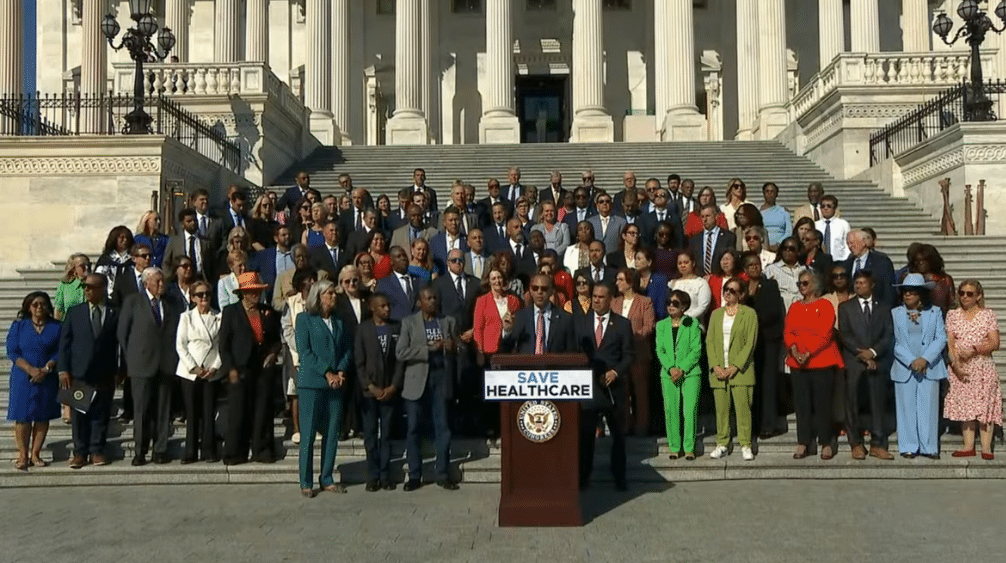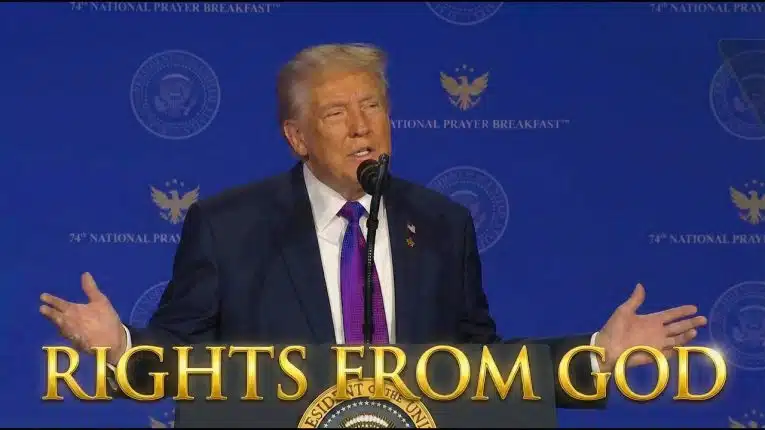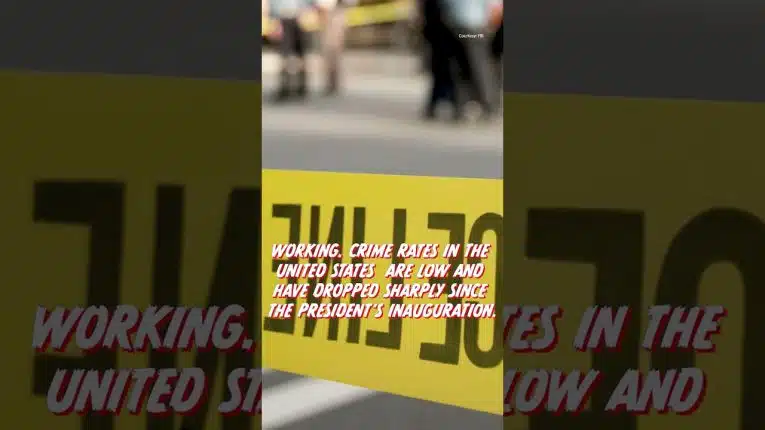
Chuck Schumer and Hakeem Jeffries are approaching a point of no return with their ill-advised government shutdown in a desperate bid to indefinitely continue expanded tax credits for 24 million Obamacare exchange recipients and to put illegal aliens back on government health care rolls.
The longest partial government shutdown ever was 35 days, but what if this one goes on indefinitely? That is, what if a government shutdown went on for months or even a year or two?
Reductions in force are mandated under federal law and regulations when there is a “shortage of funds”, which Congressional Democrats have artificially created. Congress in its infinite wisdom has never thought beyond compensating excepted and unexcepted employees after a lapse in funding ends, always assuming that Congress will pass the funding bill within a sufficient amount of time, and thus has left open to interpretation what legally must happen during a prolonged lapse in funding.
Would the argument be that the people who are no longer working or getting paid for months somehow must be allowed to keep their positions? It’s a ludicrous position.
The Constitution is clear in Article I, Section 9 that no funds may be spent except from appropriations originating in the House of Representatives. Well, right now there are no discretionary appropriations originating from the House, because the Senate Democrats are filibustering the clean continuing resolution. But emergency shutdown processes at the federal government cannot continue indefinitely. There is some notice required to implement reductions in force, however, at a certain point, the shortage of funds will mandate that there’s nothing left for the government to do but to start laying non-essential employees off. And that’s just the beginning. What then?
At a certain point, if Congress cannot function in fulfilling its Article I responsibilities because 41 Senators are holding up funding, either the Senate will have to vote to override standing Senate rules and the filibuster as they’ve done for presidential appointments — which could be a really bad idea — or else the President will be required to declare a national emergency.
Most spending, about $5.3 trillion, is mandatory spending: Social Security, Medicare, Medicaid, food stamps, the military, interest on the debt, etc. and somebody has to be there to spend it. The President is required to keep the mandatory functions of government running regardless of what Congress does.
The Anti-Deficiency Act provides for “excepted” employees but the law only contemplates post-lapse compensation. In the meantime, involuntary servitude is strictly forbidden by the 13th Amendment. The Treasury is still collecting revenue. Under the 13th Amendment, after a prolonged shutdown, no matter what the excepted employees will ultimately have to be paid. They are not slaves. The Anti-Deficiency Act would not be able to overcome the 13th Amendment in the event of an indefinite lapse of funding. It would unconstitutional to not pay them and so, under the emergency, the President would ultimately have to pay them.
The bottom line is the President is compelled under Article II to execute the laws. If Congress simply doesn’t pass a budget, then he will still have to carry out his responsibilities, eventually be compelled to declare an emergency, pay for the mandated functions including the employees and military since under the 13th Amendment they cannot be compelled to work without pay forever — effectively creating new contracts for the excepted employees — and operating the government on a constitutional albeit emergency basis until Congress decides not to abdicate its own constitutional responsibilities.
To bridge the gap, the Treasury could tap the $7.57 trillion in intragovernmental holdings of U.S. treasuries, replenishing them once funding resumes, similar to extraordinary measures it must take as the U.S. approaches the debt ceiling.
Otherwise, Congress could just overthrow the government simply through a lapse of funding. But that’s not what would happen.
Just like Social Security payments continue amid the shutdown, under the emergency, the President will eventually have to define the scope of the functions Congress has already mandated must occur, including military readiness, and see to their continued implementation.
Just as if Congress were somehow incapacitated in a terrorist attack, the President would still be required to continue operating the government until new elections could be held as a matter of the continuity of government on an emergency basis, and so too must the President continue the mandated functions of government in order to protect national security, prevent against an economic collapse and to fulfill constitutional responsibilities to federal employees to pay them for working in the event of a prolonged shutdown. After that, it gets even better. The question is do Chuck Schumer and Hakeem Jeffries want to find out?
Robert Romano is the Executive Director of Americans for Limited Government.






